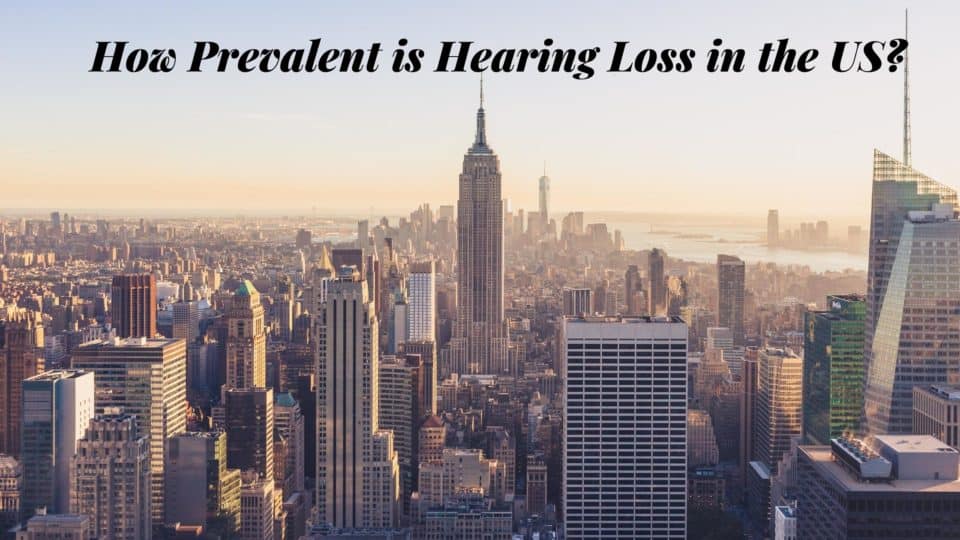- A Closer Look at Common Myths About Hearing Loss - May 7, 2024
- The Impact of Pets on Emotional and Hearing Health - April 26, 2024
- Strategies for Coping with Single-Sided Deafness - April 16, 2024
Hearing loss is quite widespread, although rarely seen or discussed in the media. In reality, millions of people in the United States have substantial hearing loss. Unfortunately, despite the adverse effects of untreated hearing loss on health and quality of life, most hearing loss goes untreated.
In the United States, hearing loss is common
Around 15% of American individuals over 18, or 37.5 million people, are estimated to have significant hearing loss. Hearing loss can strike at any age, with 27.7 million occurrences of hearing loss happening between the ages of 20 and 69. Men make up around two-thirds of hearing loss cases in this age group, while women account for roughly one-third.
Noise exposure at work and in the workplace might significantly increase your chances of developing hearing loss. Speech-frequency hearing loss, which affects our ability to understand speech, was identified in 18 percent of 20-69-year-olds with five or more years of occupational noise exposure. Speech-frequency hearing loss was just 5.5 percent in 20-69-year-olds who did not work at unsafe noise levels, suggesting that hearing loss was more than three times as standard for persons exposed to hazardous noise on the job.
Hearing loss and our age
No age group is immune to the possibility of severe hearing loss. Around 2-3 newborns out of every 1000 are born with hearing loss in today’s world. Early ear infections, which can cause hearing loss in children, are pretty prevalent, impacting approximately 80% of children under three. All babies and toddlers should be checked for hearing loss regularly. It can stifle language development and learning if left untreated at a young age.
Hearing loss can affect people of any age. Still, it is more common as we get older, partly because much hearing loss is irreversible and cumulative, accumulating over time into substantial hearing impairments, and partly because our auditory system becomes more susceptible to harm as we age. Consider the prevalence of disabling hearing loss: 2 percent of adults aged 45 to 54, 8.5 percent of people aged 55 to 64, 25 percent of adults aged 65 to 74, and 50 percent of adults aged 75 and up have disabling hearing loss. This exponential increase underlines the importance of hearing tests as we become older.
What happens if hearing loss is untreated
Hearing loss is a condition with catastrophic repercussions if ignored. Despite this, hearing loss in the United States is still severely undertreated. People wait an average of seven years between noticing a change in their hearing and seeking treatment for hearing difficulties. Hearing aids are used by less than 30% of persons over 70 who could benefit from them. Hearing aid adoption is considerably less common among people under 70. Hearing aids are used by only 16 percent of adults between the ages of 20 and 69 who could benefit from them.
The earlier hearing loss is identified and treated, the easier it is to adjust to hearing aids, and the danger of complications from untreated hearing loss is considerably decreased. However, if left untreated, it can exacerbate a variety of other health issues. Many elements of our quality of life are influenced by hearing loss. Hearing loss raises a person’s risk of depression, anxiety, and social isolation if it is not treated.
Hearing loss that is not corrected can have a long-term cognitive impact on the brain. Hearing loss, regardless of severity, has been found to impede our cognitive ability and response. Hearing loss reduces a person’s cognitive bandwidth for balance and coordination, increasing the risk of falling and accidental injury. Most notably, untreated hearing loss has been related to an increased risk of dementia; the greater the hearing loss, the higher the risk.
Is it time for you to get your hearing tested?
If you’re concerned about your hearing, it’s important to take steps to protect your hearing. The first step is to make an appointment for a hearing test. A hearing exam provides thorough testing and connects you with hearing aids and other solutions for your issues. There’s no better time than now to start improving your hearing, so contact us today to schedule your next hearing test!

